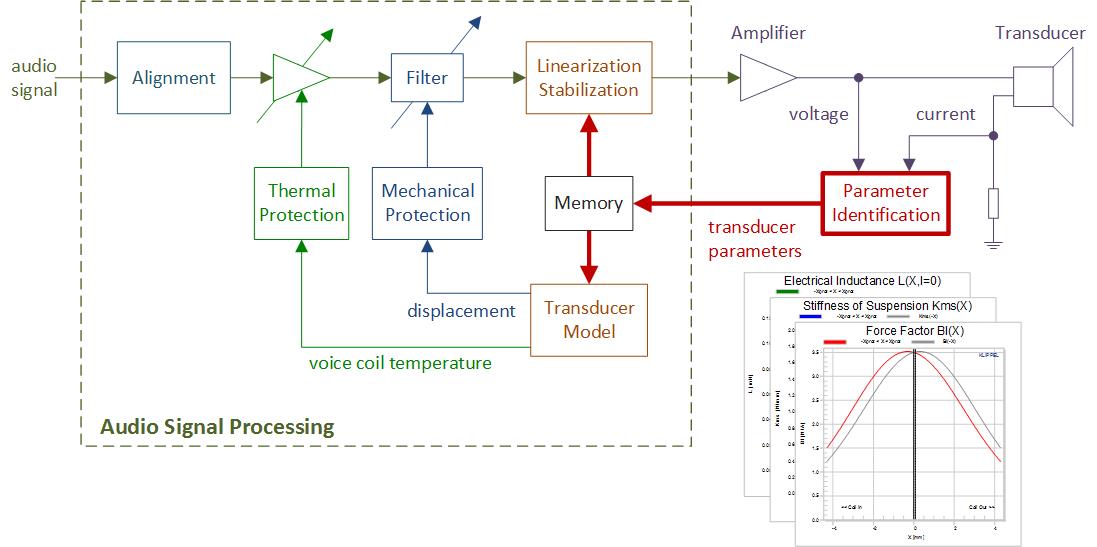Self-Learning and adaptive Solution
- Adaptive software solution
- Based on a nonlinear physical model
- Automatic parameter identification
- On-line learning with any audio signal
- Uses the transducer itself as sensor
KCS uses the transducer itself as the sensor to identify the instantaneous transducer parameters by monitoring voltage and current at the speaker terminals. The nonlinearities indicate the usable working range of the transducer, eliminating time-consuming tuning by a human expert.
While playing music in on-line mode, KCS constantly monitors voltage and current at the speaker terminals to continuously adapt the internal model with time-varying transducer properties, such as variances of mechanical stiffness, voice coil temperature and voice coil position. Based on the identified parameters, the nonlinear transducer model estimates precise state information such as voice coil displacement, which is required by the protection systems.
Demo Video
Video: Adaptive Algorithm
With loading this video, you agree that your data will be transferred to YouTube and that you have read our data protection policy.
The video shows how the KCS algorithm can identify and adapt to variations of the loudspeaker parameters while playing any music.
The back of the enclosure is opened to simulate a change in the stiffness of the transducer which corresponds i.e. to an aging of the suspension or changed environment conditions. KCS detects this parameter variation, continuously updates the transducer model and ensures a constant frequency response.

